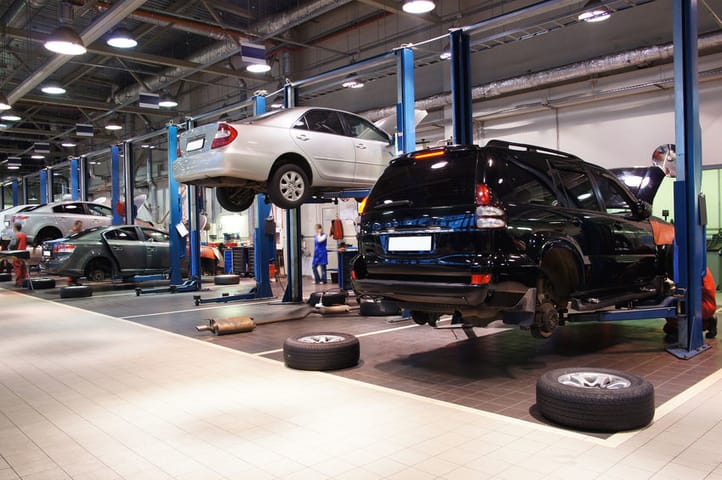All Categories
Featured
Winter driving can be one of the most challenging and potentially unsafe problems for any automobile proprietor. Preparing your automobile for winter is critical to guarantee that it carries out securely and dependably.
![]()
Verdict. Winter season driving requires even more preparation than simply wrapping and obtaining behind the wheel. To remain risk-free when driving, ensure your vehicle is winter-ready by checking the battery, liquids, brakes, and tires. Regular upkeep, combined with emergency readiness, can make all the difference when navigating icy roadways and difficult weather. By complying with these suggestions, you'll be fully equipped to take on the winter months with confidence, comfort, and safety and security.
- Inspect the Battery. Cold temperature levels can significantly affect your vehicle's battery efficiency. A weak or old battery is most likely to fall short when the temperature level drops, leaving you stranded. Have your battery checked to guarantee it is in excellent problem. It might be time for a substitute if your battery is more than 3 years old or reveals signs of deterioration. Furthermore, clean any kind of rust from the battery terminals and ensure they are tightly attached.
- Examine the Tires. Wintertime conditions require a lot more from your tires. Winter tires are designed with special tread patterns and substances that give much better hold on snow and ice. If you live in an area with harsh wintertimes, think about switching over to winter tires.
- Examine Fluids and Antifreeze Degrees. In wintertime, your lorry counts on its liquids to operate efficiently, so ensure that your antifreeze is at the correct level. The coolant system prevents your engine from freezing, so completing the antifreeze or having it flushed and changed if required is crucial. Likewise, examine the levels of engine oil, brake liquid, and windshield washing machine liquid. Ensure you use a winter-grade windscreen washer fluid that will not ice up in the chilly, and keep the storage tank full to ensure excellent exposure during wet or snowy problems.
- Inspect the Wipers and Windshield. Your windscreen wipers are your initial line of defense versus inadequate exposure, so it's necessary to make certain they remain in top problem. Replace old, worn wipers, and make use of winter wiper blades, which are extra resistant and long lasting to ice build-up. Inspect the windshield for chips or cracks that might intensify in freezing temperature levels. Think about using a water repellent treatment to the windscreen to help water grain off during storms and enhance exposure.
- Examination Your Brakes. Brakes are much more vital in winter driving. Slippery conditions need fast feedbacks, so make certain your brake pads, blades, and brake fluid are all in good problem. Have them changed or topped off if your brake pads are used or your brake liquid is reduced. When driving in icy or snowy problems, constantly preserve a safe range from other lorries and make use of added caution when stopping to avoid accidents.
- Plan for Emergencies. Regardless of your ideal efforts to prepare your car, winter season driving can still offer unanticipated obstacles. A bag of sand or salt can also be useful for traction if your lorry gets stuck.

- Guarantee Correct Lighting. Winter months typically suggests shorter days, so it's essential to make certain your fronts lights, tail lights, and brake lights are functioning correctly. Check for any type of burned-out light bulbs and replace them before you hit the road.
- Ensure Correct Tire Chain or Grip Help Readiness. If you stay in a location that on a regular basis experiences severe winter season weather condition, take into consideration maintaining tire chains or grip aids in your automobile. These can be invaluable when driving in deep snow or over frozen roads. Make sure you understand how to mount them correctly and practice in advance, so you're not captured off-guard in an emergency situation.
- Examine Your Heating and Defrosting Systems. You'll want your home heating and defrosting systems to be in optimal working order for those cold, chilly mornings. Check the heating system and defroster to guarantee they are functioning well, and replace any kind of cabin air filters if needed to preserve good air circulation. A malfunctioning heater can make driving awkward and even hazardous, specifically when roads are icy and presence is compromised by fogged home windows.
Verdict. Winter season driving requires even more preparation than simply wrapping and obtaining behind the wheel. To remain risk-free when driving, ensure your vehicle is winter-ready by checking the battery, liquids, brakes, and tires. Regular upkeep, combined with emergency readiness, can make all the difference when navigating icy roadways and difficult weather. By complying with these suggestions, you'll be fully equipped to take on the winter months with confidence, comfort, and safety and security.
Latest Posts
Improve Your Home's Outside with Weathercraft's Siding Solutions
Published May 28, 25
1 min read
Safeguard and Improve Your Home with Weathercraft's Siding Solutions
Published May 27, 25
1 min read
Uncover Brake Repair & More: Full Repair Options from Montclare Auto Repair
Published May 27, 25
1 min read
More
Latest Posts
Improve Your Home's Outside with Weathercraft's Siding Solutions
Published May 28, 25
1 min read
Safeguard and Improve Your Home with Weathercraft's Siding Solutions
Published May 27, 25
1 min read
Uncover Brake Repair & More: Full Repair Options from Montclare Auto Repair
Published May 27, 25
1 min read